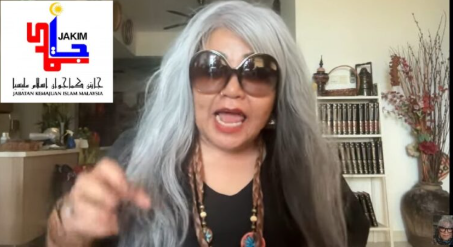
Siti Kasim Slams Proposed Religious Restrictions, Calls for Muslim Autonomy
9 Feb 2025 • 1:30 PM MYT

Kamran
A freelance content creator

Image Credit: Focus Malaysia
Prominent human rights activist and lawyer Siti Kasim has strongly criticized what she sees as excessive moral policing by the government, particularly regarding proposed guidelines restricting Muslim participation in non-Muslim celebrations and events. The guidelines, currently under discussion, have sparked concerns about further limitations on personal freedoms.
Siti expressed her outrage over the matter, asserting that such measures undermine the intelligence and autonomy of Muslims. She challenged the authorities by declaring her willingness to attend non-Muslim festivities, such as Chinese New Year, Deepavali, or Christmas, even if the guidelines eventually become law. Daring the government to take legal action against her, she insisted that Muslims should not be treated as incapable of making their own decisions.
In her response to the proposal by Minister in the Prime Minister’s Department (Religious Affairs) Datuk Dr Mohd Na’im Mokhtar, she described the initiative as another attempt to impose unnecessary restrictions on the daily lives of Muslims. She argued that existing regulations already dictate what Muslims can eat, wear, and do, and questioned whether the authorities would next seek to control personal finances as well.
Despite public backlash, the minister has defended the proposal, stating that it is still under deliberation by religious authorities and experts. However, Siti warned that if the guidelines were to be enforced as law, they could lead to penalties, including fines, imprisonment, or even corporal punishment for those who defy them.
Expressing her frustration, she pointed out that Malaysia has long been ranked among the top countries in the world for imposing religious restrictions, with laws governing nearly every aspect of Islamic practice. She claimed that these regulations have become even more rigid in recent years, surpassing levels seen under previous administrations.
Siti emphasized that faith should not be a barrier to social interactions between Muslims and non-Muslims. She argued that extending goodwill by attending celebrations or offering condolences at funerals should not be viewed as a religious transgression. She further cited Islamic teachings that emphasize respect for human dignity, regardless of religious or ethnic background.
Ultimately, she questioned the government’s authority to dictate personal choices in matters of faith. While acknowledging religious boundaries, she insisted that judgment should be left to God, not enforced through state policies. She also highlighted the unique cultural dynamics in places like Sabah and Sarawak, where interfaith relationships and mixed marriages are common, making such restrictions even more impractical.
No comments:
Post a Comment